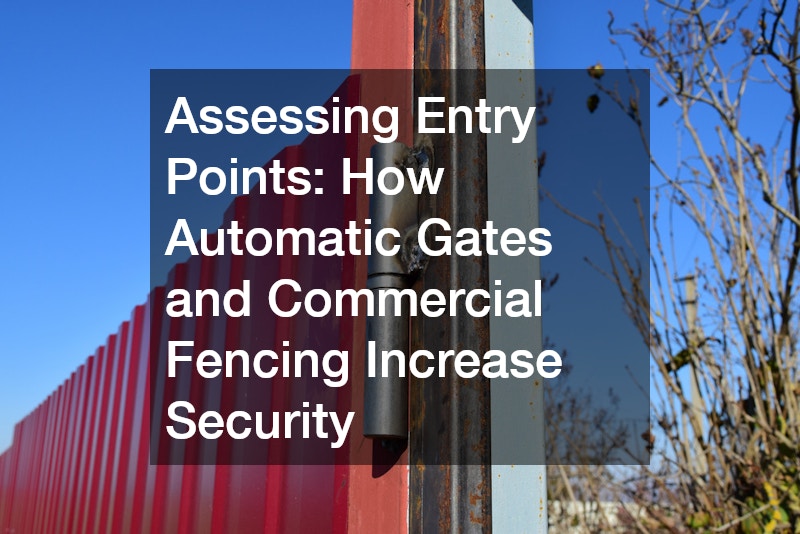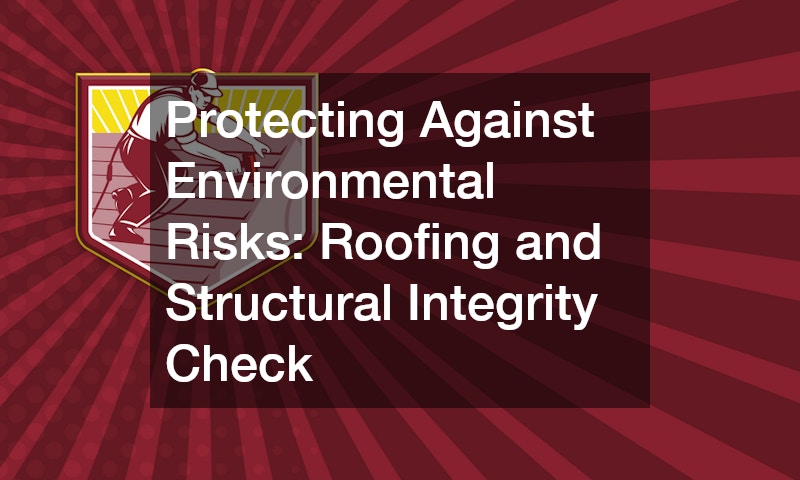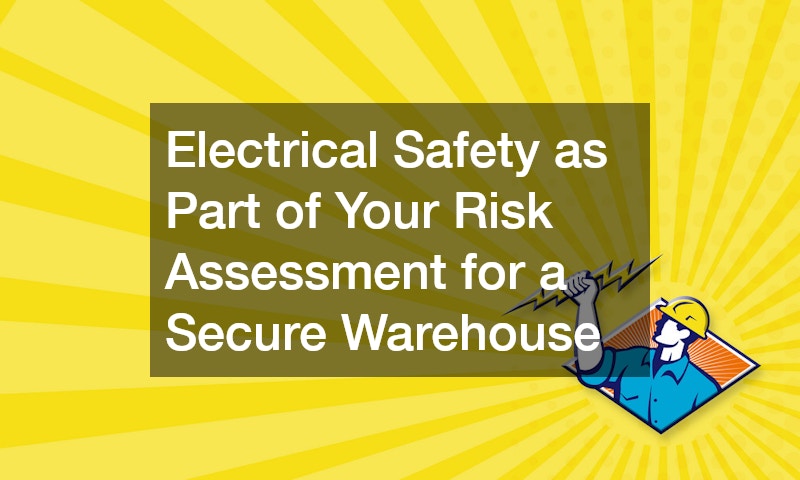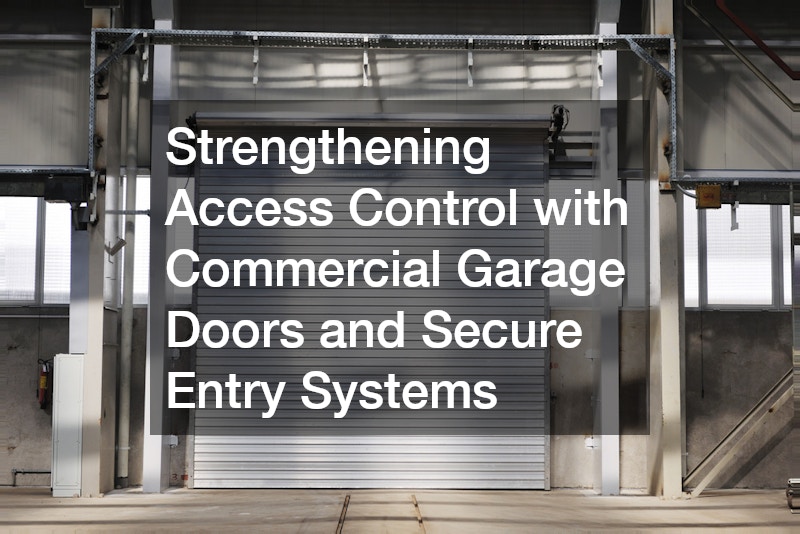A comprehensive warehouse risk assessment is essential in maintaining a secure and efficiently functioning facility. This involves evaluating various aspects of the warehouse environment to mitigate potential risks. Effective risk assessment incorporates security measures, structural integrity checks, and strategic collaborations with service providers.
As warehouses often house substantial inventory and expensive equipment, ensuring their protection from various risks is crucial. By implementing robust security systems and regular inspections, warehouse operators can keep operations smooth and safe. In this article, we will explore the multiple facets of warehouse risk assessment, providing detailed insights and recommendations.
Risk assessment not only addresses security but also includes environmental risks, employee safety, and emergency preparedness. Integrating advanced technology, professional maintenance services, and legal compliance enhances the warehouse’s resilience. We begin by examining entry point security, a foundational element of warehouse safety.
Assessing Entry Points: How Automatic Gates and Commercial Fencing Increase Security

Entry point security is critical in any warehouse risk assessment, providing the first line of defense against unauthorized access. An automatic gate system can significantly enhance security by controlling who enters and exits the premises. Partnering with a reputable commercial fence company ensures that your warehouse’s perimeter security aligns with industry standards.
Commercial fencing acts as a physical deterrent, minimizing the potential for breaches and vandalism. It is crucial to assess the quality and types of fencing available to safeguard your warehouse effectively. Automatic gates offer additional security features such as remote monitoring and controlled access, which can be integrated into a comprehensive security plan.
Regular inspections and maintenance of automatic gates and commercial fences are essential to ensure their functionality. These security measures help prevent potential intruders from exploiting vulnerabilities in your warehouse’s perimeter. Proper integration of these systems into your warehouse risk assessment ensures ongoing protection and peace of mind.
Protecting Against Environmental Risks: Roofing and Structural Integrity Check

Protecting a warehouse from environmental risks requires a keen focus on its structure, starting with the roof. A commercial roofing system needs regular inspection and maintenance to withstand adverse weather conditions and prevent leaks or collapses. Engaging professional commercial roofing services is crucial to detect and address any issues early on.
Structural integrity checks are imperative to ensure that the building can handle harsh environmental factors. These evaluations also include the warehouse’s foundation, walls, and support structures to prevent any potential hazards. A sound structural setup mitigates risks such as equipment damage, product loss, and operational downtime caused by environmental factors.
Regular maintenance of the roofing system and other structural components must be a part of the standard warehouse risk assessment. By keeping these elements in optimum condition, warehouses can safeguard against unforeseen circumstances that can lead to costly repairs or operational halts. Collaborating with commercial roofing experts helps maintain a structurally sound warehouse environment.
Electrical Safety as Part of Your Risk Assessment for a Secure Warehouse

Electrical safety is an often overlooked component of warehouse risk assessment, yet it is paramount for overall safety and functionality. Conducting regular electrical safety checks helps identify any hazards that could lead to accidents, equipment failure, or fires. Engaging electrical repair services can address identified issues, ensuring compliance with safety regulations.
A proactive approach towards electrical safety involves inspecting wiring, power outlets, and lighting systems to prevent overloads and faults. Warehouses should implement comprehensive safety standards to guard against electrical mishaps, benefiting from the expertise of electrical repair services. This routine inspection is crucial in maintaining a safe working environment for employees.
Involving trained professionals in assessing electrical systems can pinpoint potential risks that are otherwise difficult to detect. Regular checks and immediate rectifications contribute significantly to overall risk management, enhancing warehouse operations’ safety. Electrical safety is integral to any effective warehouse risk assessment strategy.
Strengthening Access Control with Commercial Garage Doors and Secure Entry Systems

Commercial garage doors play a vital role in securing warehouse access points, especially for loading and unloading activities. Investing in advanced entry systems ensures that access is monitored and controlled to prevent unauthorized entries. Combining secure entry technologies with durable commercial garage doors enhances overall warehouse security.
Access control systems can be integrated with digital verification methods such as biometric and card-based entries. These measures are essential in maintaining a controlled environment, particularly in high-traffic areas. Regular updating of access settings and monitoring activities are vital components of a thorough warehouse risk assessment.
Collaborating with security experts to install and maintain these systems ensures optimal performance and reduced vulnerabilities. Regular training for employees on access protocols further solidifies the security framework. The integration of commercial garage doors and secure entry systems is a step forward in fortifying physical access control.
Addressing Liability Concerns: What Employment Lawyers Recommend for Warehouse Safety
Employment lawyers play a crucial role in understanding and mitigating liability concerns within warehouse operations. They provide guidance on maintaining safe working conditions that comply with labor laws and industry standards. Warehouses benefit by incorporating legal insights into their risk assessment strategies, addressing potential safety and liability issues.
Regular safety training and updating operational protocols under the advisement of employment lawyers can significantly improve workplace safety. These legal experts help warehouse management understand their responsibilities towards employee well-being and risk management. By addressing these concerns proactively, warehouses can minimize liability risks and ensure compliance.
Employment lawyers also assist in developing contingency plans for workplace incidents, ensuring a swift legal response when necessary. Partnering with these professionals can provide valuable insights into creating a secure and legally compliant warehouse environment. Ensuring workforce safety is a vital aspect of a comprehensive warehouse risk assessment.
Safeguarding Valuable Equipment: Best Practices for Metal Manufacturing Storage Areas
Secure storage of metal manufacturing equipment is integral to preserving assets and maintaining operational efficiency. Implementing structured storage solutions prevents equipment damage, loss, and unauthorized access. Effective warehouse risk assessment includes strategies tailored specifically for the protection of such valuable assets.
Regular inventory checks, coupled with efficient labeling and sorting systems, facilitate easier tracking and management of equipment. Advanced storage solutions such as lockable cabins and climate-controlled environments may be necessary, depending on equipment sensitivity. Monitoring technologies further ensure that high-value items are adequately protected against theft or misuse.
Collaborating with storage experts can help design layouts that maximize security while maintaining accessibility and efficiency. Periodic reviews of storage protocols should be conducted to align with evolving equipment and technology changes. Proper storage practices are essential in enhancing the overall effectiveness of warehouse risk assessments.
Digital Security Measures: IT Management Services to Protect Sensitive Data
In today’s digital age, safeguarding sensitive data is an indispensable component of warehouse security. IT management services provide comprehensive strategies to protect against cyber threats, data breaches, and system failures. Effective data protection must be a key component of any warehouse risk assessment, ensuring that sensitive information remains secure.
These services often include the implementation of firewalls, encryption, and regular security audits. Establishing multi-factor authentication and access control protocols are additional steps that can significantly enhance digital security. By addressing these digital vulnerabilities, warehouses can prevent unauthorized data access and potential operational disruptions.
Regular collaboration with IT management professionals ensures that digital security measures evolve alongside emerging threats. Training staff on cybersecurity best practices further reinforces the warehouse’s digital defenses. Digital security is a critical layer that complements the overall warehouse risk assessment strategy.
How Commercial Tow Truck Companies Can Support Your Emergency Response Plan
In emergencies, having reliable commercial tow truck companies on call as part of your response plan can be invaluable. These companies provide swift and efficient solutions for vehicle-related incidents, minimizing disruption to warehouse operations. Integrating their services into your risk assessment enhances your readiness for unexpected situations.
Tow truck companies can assist in removing obstructive vehicles, freeing up crucial access points during emergencies. Their involvement ensures that logistics and supply chain activities can resume with minimal downtime. This collaboration underscores the importance of preemptive planning and teaming up with specialized service providers.
Building a partnership with a reputable tow truck company means having immediate support at hand during critical situations. Regular reviews of the existing response plan, with contributions from these professionals, enhance overall preparedness. Effective emergency response is a vital component of a comprehensive warehouse risk assessment.
Keeping the Grounds Safe: Asphalt and Pavement Maintenance for Enhanced Security
Well-maintained grounds are essential for ensuring safe and efficient warehouse operations. Engaging commercial asphalt contractors in regular pavement inspections and repairs helps prevent accidents due to surface degradation. Prioritizing pavement maintenance is a necessary component of a thorough warehouse risk assessment.
Uneven or deteriorated surfaces can pose significant safety hazards, affecting both pedestrian and vehicular movement. Addressing these issues promptly with the help of commercial asphalt contractors mitigates the risk of accidents and costly repairs. Regular maintenance not only preserves the aesthetics but also extends the lifespan of the warehouse’s exterior surfaces.
Routine inspections should form a part of the warehouse’s maintenance schedule, identifying and addressing defects early. Partnering with professional asphalt contractors ensures that the grounds remain in optimal condition throughout various seasons. Safe and well-maintained surroundings contribute to an efficient and risk-free warehouse environment.
Regular Inspections for Roof Integrity to Prevent Security Breaches and Hazards
Regular roof inspections are vital for identifying and addressing potential vulnerabilities that could jeopardize security and safety. Warehouses should prioritize thorough evaluations of roofing materials, drainage systems, and overall structural integrity. By identifying issues early, warehouses can effectively prevent security breaches and protect inventory.
Engaging experienced commercial roofing professionals can provide detailed assessments, highlighting areas in need of attention. Repairs and maintenance, when performed promptly, contribute significantly to the safeguarding of warehouse assets. As a critical aspect of warehouse risk assessment, regular roof inspections ensure the safe and continuous operation of facilities.
Additionally, maintaining updated records of inspections and actions taken is essential for ongoing risk management and compliance. Collaboration with roofing experts brings peace of mind, knowing that roof integrity is sustained across all conditions. Ensuring roof resilience enhances the overall security framework of the warehouse.
Emergency Protocols: Coordinating with Electrical Repair Services for Power Security
Power security is pivotal for warehouse operations, necessitating clear emergency protocols that encompass coordination with electrical repair services. A dedicated partnership with these services ensures prompt attention to power disruptions and faster resolution of electrical issues. Effective handling of power-related incidents is a vital element of comprehensive warehouse risk assessment.
An efficient emergency protocol outlines clear responsibilities and procedures in case of electrical failures. Warehouses benefit from swift service availability, reducing the impact of power outages on overall productivity. Engaging electrical repair services with a solid understanding of warehouse systems minimizes downtime and supports recovery efforts.
Regular communication and updates with electrical service providers can refine and enhance emergency protocols. Staff training and simulations aid in practicing response strategies, ensuring readiness during actual emergencies. Well-coordinated power security efforts are essential for maintaining uninterrupted warehouse operations and safety.
Building a Secure Environment: Partnering with Commercial Contractors for Upgrades
Continuously building a secure environment often requires partnering with commercial contractors who specialize in facility upgrades. These professionals bring the expertise needed for security-enhancing upgrades, contributing to a comprehensive warehouse risk assessment. Upgrades may encompass advanced security systems, structural reinforcements, and modernized facilities.
Partnering with contractors experienced in warehouse requirements ensures that improvements align with operational and security needs. Innovations in materials and technologies can offer enhanced protection and efficiency, improving overall risk management. Planned upgrades tailored to warehouse operations can lead to improved safety and security.
Strategic collaborations with commercial contractors foster a proactive approach to addressing vulnerabilities and continuous improvement. Regular assessments and adjustments ensure that the warehouse remains updated in combating emerging risks. Investing in security upgrades with professional guidance fortifies the overall warehouse environment, aligning with long-term operational goals.
Warehouse risk assessment is a multifaceted endeavor that incorporates structural, operational, and security considerations. Effective assessments manage risks through proactive measures and strategic collaborations, safeguarding both physical and digital assets. By addressing entry points, structural integrity, perimeter security, and emergency protocols, comprehensive protection is achieved.
With the insights provided in this article, warehouse operators can enhance security programs and ensure compliance with industry standards. Applying best practices in coordination with trusted service providers elevates the safety and efficiency of warehouse operations. Continual evaluation and adaptation are key to maintaining a safe and secure warehouse environment.
In the ever-evolving landscape of warehouse operations, embracing a thorough risk assessment strategy is paramount. Future-proofing a warehouse entails adopting innovative technologies and practices that address present and potential risks. With strategic planning and execution, warehouses can ensure sustained security and operational excellence, long into the future.
